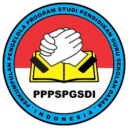Peran Orang Tua dalam Meningkatkan Prestasi Belajar Siswa pada Masa Pandemi Covid 19
DOI:
https://doi.org/10.35568/naturalistic.v7i2.3010Keywords:
Role of Parents, Learning Achievement, Covid 19Abstract
The main problems in this study were the difficulty of students in understanding the learning materials provided by the teacher at school, the lack of parental attention in guiding and accompanying their children's learning at home, the lack of time for parents to guide and accompany their children to study at home, the lack of attention from other people. old in time management. The type of research used is descriptive qualitative research. This research was conducted at SD Negeri 163/VIII Sungai Jernih, Muara Tabir District, Tebo Regency. The subjects in this study were students in grades 3, 4 and 5 and the parents of these students. This research was conducted in the 2020/2021 academic year. Data collection techniques used are observation, questionnaires, interviews, and documentation. The sample in this study was 30 students in class III, 30 students in IV and 30 in V. The result of this study is that the role of parents in determining student achievement in school is very large. The difficulty of parents in managing their children's study time, not wanting to know how their children's learning progress, can cause children not to succeed in their studies. On the other hand, parents who always pay attention to their children, especially attention to their learning activities at home, make children more active and more enthusiastic in learning. So that learning outcomes or learning achievements achieved by students become better.
Downloads
References
Apdoludin. (2021). Analisis kritis Pengatar Pendidikan. Kebumen: CV. Intishar Publishing
Hamalik, Oemar. 2011. Proses Belajar Mengajar. Jakarta. PT Bumi Aksara.
Ibrahim. 2015. Metodologi Penelitian Kualitatif. Bandung: CV Alfabeta
Iftitah, S. L. dan Anawaty, M. F. 2020. Peran Orang Tua Dalam Mendampingi Anak Di Rumah Selama Pandemi Covid-19. JCE (Journal of Childhood Education) Vol. 4 No. 2 Tahun 2020 | Hal. 71 – 81
Kurnia, H., dan Widayanti, F., 2020. The Effect Of Hizbul Wathon's Character Education On Student's Learning Achievement In SMP Muhammadiyah 7 Yogyakarta. Academy of Education Journal , 11 (01), 75-86.
Lestari, R. D. 2012. Hubungan Antara Motivasi Belajar dan Dukungan Orang Tua dengan Prestasi Belajar Siswa. (Skripsi tidak Diterbitkan). Surakarta: Fakultas Psikologi Univeristas Muhammadiyah, Surakarta.
Moleong, L. J. 2010. Metodologi Penelitian Kualitatif, Bandung: Remaja Rosdakarya.
Sugiyono, 2009, Metode Penelitian Kuantitatif, Kualitatif dan R&D, Bandung : Alfabeta, CV.
Sugiyono, 2017. Metode Penelitian Kuantitatif, Kualitatif, dan R&D. Bandung : Alfabeta, CV.
Sugiyono. 2018. Metode Penelitian Kuantitatif, Kualitatif, dan R&D. Bandung: Alfabeta
Suharsimi A. 2015. Prosedur penelitian: Suatu Pendekatan Praktik. Jakarta: Rineka Cipta.
Undang – undang Ketetapan MPR Nomor I/MPR/1988 Tahun 1988
Valeza Rizka Alsi, 2017. skripsi Peran Orang Tua Dalam Meningkatkan Prestasi Anak Di Perum Tanjung Raya Permai Kelurahan Pematang Wangi Kecamatan Tanjung Senang Bandar Lampung. UIN Raden Intan – Fakultas Dakwah dan ilmu Komunikasi. Lampung
Wijaya, Hengki. 2018. Analisis Data Kualitatif. Makassar: Sekolah Tinggi Theologia Jaffray
Winingsih, Endang. (2020). Peran Orang Tua Dalam Pembelajaran Jarak Jauh. April 2, 2020. Poskita.co: https://poskita.co/2020/04/02/peran-orangtua-dalam-pembelajaran-jarak-jauh/
Downloads
Published
How to Cite
Issue
Section
License
Copyright (c) 2023 Naturalistic: Jurnal Kajian dan Penelitian Pendidikan dan Pembelajaran

This work is licensed under a Creative Commons Attribution-NonCommercial-NoDerivatives 4.0 International License.
Copyright of Journal Naturalistic : Jurnal Kajian Penelitian Pendidikan dan Pembelajaran (e-ISSN:2548-8589, p-ISSN:2528-2921).
Open Access Policy
This journal provides immediate open access to its content on the principle that making research freely available to the public supports a greater global exchange of knowledge.
This journal is open access journal which means that all content is freely available without charge to users or / institution. Users are allowed to read, download, copy, distribute, print, search, or link to full text articles in this journal without asking prior permission from the publisher or author. This is in accordance with Budapest Open Access Initiative.










